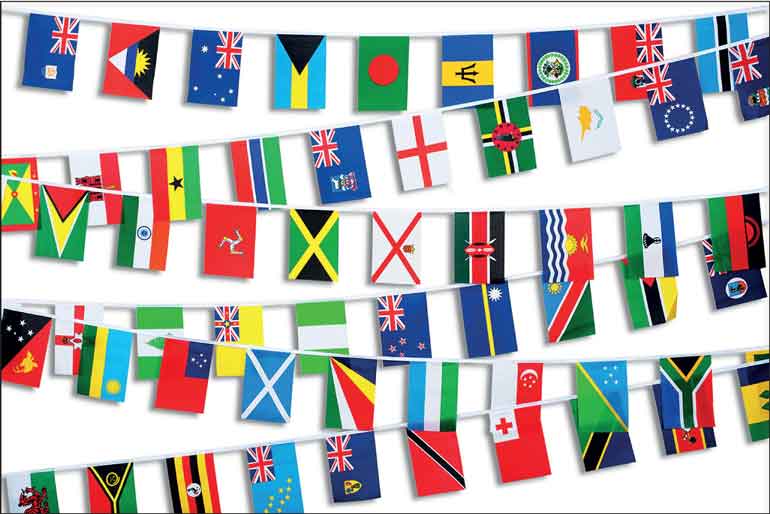Monday Feb 16, 2026
Monday Feb 16, 2026
Saturday, 2 December 2023 00:00 - - {{hitsCtrl.values.hits}}

Common Wealth are two words that implies a sharing of wealth. Going deeper into the humanity based relevance, it means a sharing of the wealth of this earth. Much of this world’s unrest is that the wealth of the earth which should be common to all for greater good is not equally shared.
These two words get conjoined as Commonwealth to describe the post colonial evolution of the world as we know it today. At the base of this is the entwined history of shipbuilding, voyaging, trade and conquest by nations who built their power upon those lines and explored far flung territories of the earth for trade and dominance.
The colonial history is a mixed bag of good and bad memories for some nations that were dominated by imperialism. Yet, the ideal natural order of the world is a routing towards the light; the light of wisdom in realising that it is not through invasion, conquest or wars but upon the foundations of equality, cooperation and magnanimity that the future of this planet rests.
The Commonwealth therefore, can be described as a post-colonial symbol and initiative of moving out of a disturbing past into a promising future, in an envisaged holistic endeavour that compliments the human quest for learning from mistakes and moving towards rectifying them.
The Commonwealth therefore, was the name given to the post-colonial organisation formed under the patronage of Britain that unites 56 states that were territories of the former British Empire and includes parts of Africa, Asia, the Caribbean, the Americas, Europe and the Pacific. The Commonwealth of Nations was formally constituted in 1949 through the London Declaration establishing the freedom of member states. Since then the Commonwealth as a formal global organisation has been an influence upon the world. Its role in promoting literature is especially important.
In 1964, at a formal gathering of Prime Ministers of the Commonwealth countries, the forming of the Commonwealth Foundation was mooted and agreed upon to function as a charitable trust to support professional associations in the Commonwealth. Functioning by diffusing itself into civilian society through High Commissioners based out of London, it meant assistance for professional societies to emerge as routes for the Commonwealth to shed its Anglicised past and promote shared expertise. In this objective, the literary dimension takes a key place alongside capacity building of youth, climate change, democracy, governance and trade.
The Commonwealth Book Prize awarded from 1987 to 2013 by the Commonwealth Foundation was an influential milestone in encouraging writers from the former colonial states. Thereafter, the Commonwealth Writers’ Prize and the connected short story competition were relaunched under the name Commonwealth Writers, promoting a world of new fiction with the addition of new prizes.
Patricia Janet Scotland from the Caribbean is the sixth Commonwealth Secretary General.
The recent most high-level Commonwealth government officials and ministers meeting was the two day Commonwealth Ministerial Roundtable Discussion on Innovation held on 27 and 28 November, led by Kenya’s Cabinet Secretary for Youth Affairs, Sports and the Arts, Ababu Namwamba and the Commonwealth Secretary-General where leveraging innovation for inclusive, equal and sustainable development for all within the Commonwealth was discussed.
The 58th Commonwealth Parliamentary Conference was held in Colombo in September 2012 and the Commonwealth Heads of Government Meeting 2013 was also held in Colombo.